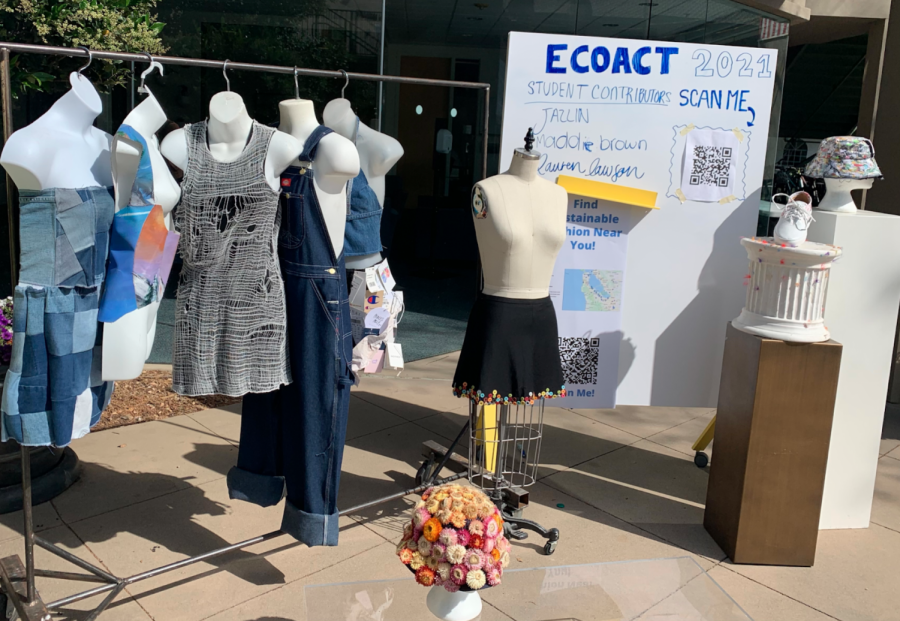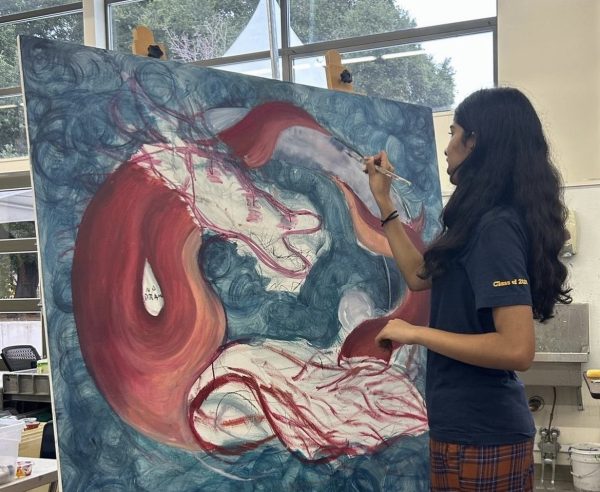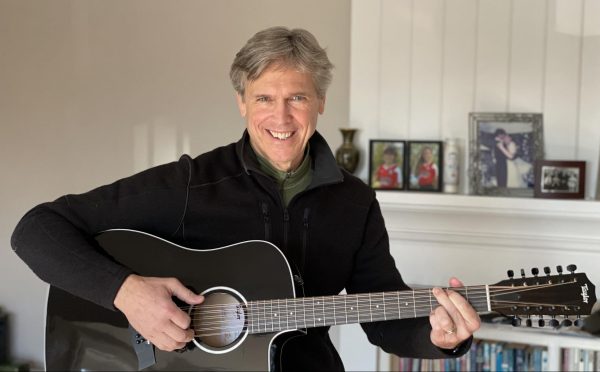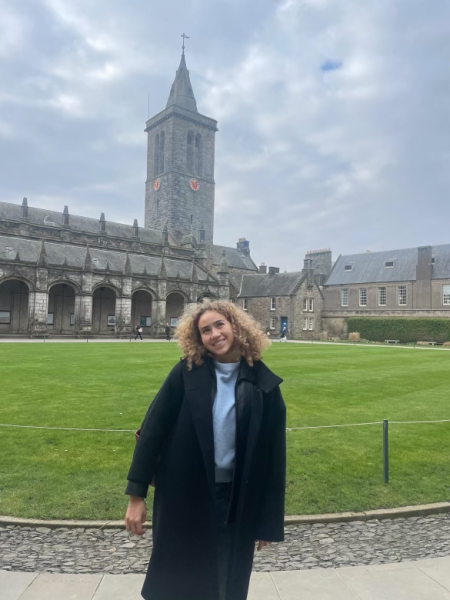EcoAct Week Recap: Menlo’s Climate Coalition Advocates for Sustainability
The Climate Coalition showcased student-made clothing pieces for their sustainable fashion auction during EcoAct Week. Staff photo: Louisa Sonsini.
May 22, 2021
Record-setting temperatures, rising sea levels and extreme weather conditions often populate news channels — all products of climate change. Today, most people across the globe see climate change as a pressing and very real issue. At Menlo, the Climate Coalition club spreads awareness around this global threat by encouraging sustainability and taking action toward more eco-friendly practices. Their most recent undertaking was EcoAct Week.
Led by senior Alix Borton, the club is split into student-led committees. Each committee tackles a specific climate-related issue, such as plastic waste or unsustainable clothing. So far, the club has pursued projects like “Meaningful Minute,” which are minute-long videos about climate issues, and the “Biden Tracker,” which provides updates on President Joe Biden’s climate change policies.
EcoAct Week was “a weeklong event filled with assemblies, advocacy activities, presentations, contests and more discussing climate change, its effects, and what we can do about it,” according to their website. Borton and other Climate Coalition members spent about a year planning the event, which lasted from Monday, April 19, through Saturday, April 24. Some of its components were ongoing, including the environmental-friendly clothing auction.
Every day had a specific theme: COVID-19 and the climate, climate justice, sustainable fashion, climate change myths and the sixth wave of mass extinction. Each committee coordinated a day, so the week’s preparation was largely a group effort. “Pretty much everybody contributed, whether it was an article or a sculpture or something,” Borton said.
With each day unpacking a specific aspect of climate change, the Climate Coalition strived to make sustainability more approachable to the Menlo community. “I think, sometimes, climate change and sustainability can be really daunting to think about,” Borton said. “[We tried] to appeal to all the different interests that students have with different themes every day, so hopefully, [there was] something for everybody.”
Senior Gabby Kogler co-led the sustainable fashion initiative. Specifically, they strived to publicize the problematic impacts of fast-fashion brands popular among the Menlo student body, such as Shein.
“I know many classmates and faculty members that rely on […] fast fashion brands,” Kogler said. “So the main intention of Fast Fashion Day was to raise awareness on the fact that the fast fashion industry contributes to climate change and global warming.”
Kogler, therefore, emphasized the accessibility of sustainable fashion in attempts to reduce clothing-generated waste. “We also wanted to offer ways to shop sustainably through thrift stores, fabric donation centers and donating to Goodwill,” Kogler said. “We wanted to make it very clear that these resources are very much available and really easy to use.”
As a part of the initiative, Kogler and her Climate Coalition peers worked to create a sustainable clothing auction. This project took over six months to put together and included pieces from students outside of the club like senior Lauren Lawson, senior Daniel Tan, freshman Maddie Brown and junior Jazlin Chen. The auction proceeds will go to the Business and Human Rights Resource Center.
Junior Jack Rosenberg helped facilitate the climate justice part of EcoAct Week. The climate justice-themed day covered the inequitable outcomes of climate change, specifically its impacts on impoverished communities. To showcase these disparities, the club organized a school-wide assembly featuring climate experts Stacey Geis and Violet Saena. Rosenberg, along with sophomore Maya Debnath and freshman Kaavya Baliga, also published case studies on local communities of low economic status exposed to dangerous toxins, a direct consequence of climate change.
“We wanted to add to the discussion about intersectionality, relating the concept to race and climate issues. Our goal for the assembly was to refocus the conversation around climate change to people instead of just animals,” Rosenberg said.
The information highlighted in both the case studies and the assembly was eye-opening for many Menlo students, including junior Saaz Ahuja. “I never knew that climate change affected lower-income communities to the point that it does,” he said.
Reflecting on the week, Climate Coalition members were satisfied with the event and its accomplishments. “It’s really exciting that Menlo students [cared] and took away a message from the week,” Kogler said.













